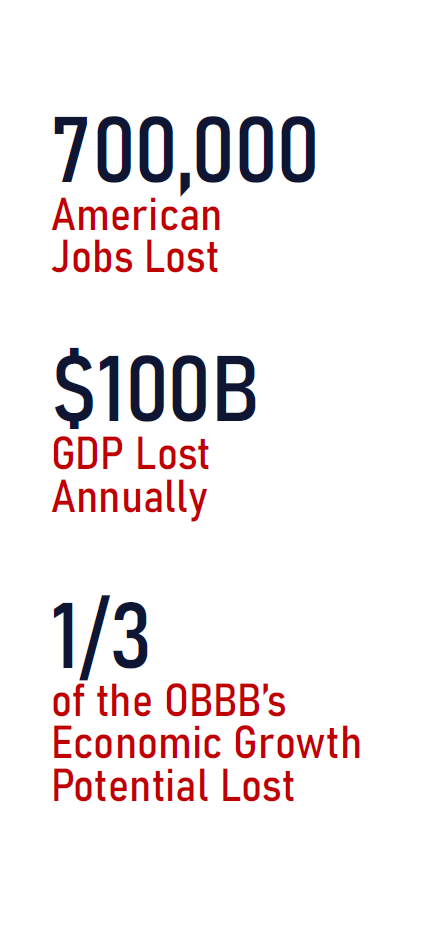Sec. 899 Report

The Section 899 tax proposal, intended as a
retaliatory measure against foreign tax regimes,
would reduce investment and eliminate hundreds
of thousands of U.S. jobs, according to an
independent third-party analysis.
The EY Quantitative Economics and Statistics
(QUEST) practice’s analysis shows that Sec. 899
would reduce U.S. GDP by $100 billion annually
and eliminate as many as 700,000 American jobs
in the long run. This tax specifically punishes
companies that invest, build and hire in the U.S.—
particularly in manufacturing and R&D. It will
also lower U.S. wages, total investment and labor
supply.
Sec. 899 undermines the pro-growth legacy of the
Tax Cuts and Jobs Act and contradicts President
Trump’s own America First Investment Policy.
The real victims aren’t foreign governments—
they’re American workers in states like South
Carolina (12,900 jobs lost), Indiana (16,100),
Tennessee (16,500), and Texas (61,700).
The Joint Committee on Taxation projects that the
full OBBB will grow the economy by +0.4 percent
over the next 10 years, and that number takes into
account the damage from Sec. 899.
The EY QUEST analysis shows that Sec. 899 alone
drags GDP down by -0.2 percent. Without it, OBBB
would deliver a +0.6 percent boost to GDP.
In other words, Section 899 erases a full one-third
of the bill’s pro-growth potential.
The new report includes state-by-state specifics on how many companies are targeted, jobs lost, and economic growth erased by the Sec. 899 tax hike.